The Phoenix Keeper by S A MacLean
Posted in Fantasy, My ParSec reviews, Reading Reviewed, Reviews published in ParSec at 12:00 on 19 November 2024
Gollancz, 2024, 474 p. Reviewed for ParSec 11.
 Aila Macbhairan has been besotted with exotic birds, in particular the Silimalo phoenix, since she was eight years old. Now, having been through zoo college, she is, along with other responsibilities, the keeper of the Silimalo phoenix at San Tamculo zoo, which specialises in magical animals. The Silimalo is critically endangered but her zoo’s breeding facilities have been in abeyance for over ten years and the exhibit houses only one specimen, a female called Rubra.
Aila Macbhairan has been besotted with exotic birds, in particular the Silimalo phoenix, since she was eight years old. Now, having been through zoo college, she is, along with other responsibilities, the keeper of the Silimalo phoenix at San Tamculo zoo, which specialises in magical animals. The Silimalo is critically endangered but her zoo’s breeding facilities have been in abeyance for over ten years and the exhibit houses only one specimen, a female called Rubra.
Aila’s other main charges are an archibird, somewhat unimaginatively dubbed Archie, a kind of superannuated magpie, with an eye for shiny objects and whose spit is a superglue for metals, and, oddly, (birds and sea creatures tend to be somewhat different,) the zoo’s kelpie, Maisie, a carnivorous aquatic horse usually wreathed in mists.
Aila is socially awkward, tongue-tied in public, shy of contact with others, but can be voluble when she is talking about phoenixes. The only people with whom she feels at ease are her parents, who encouraged her youthful enthusiasm, and her friend Tanya, the girl with whom she shared a room at college, who always took her for who she was and now looks after the zoo’s Bix phoenix.
Others of the zoo’s employees are the impossibly accomplished, perfectly groomed Luciana, with whom Aila shares a dislike having its origins at college, which Luciana seemed to breeze through with effortless grace and who puts on the zoo’s popular show starring her peacock griffins, while the “gorgeous” Connor looks after its diamondback – and other – dragons.
Aila’s main trouble is her interest in and concern for animals overrides any she might have for humans. I note, though, that she shows no distress for the mice Luciana feeds to her griffins or the goat carcases the kelpie is fed. It seems empathy can only go so far. But, of course, these animals have to eat.
Plot kicks in when a break-in at Jewelport Zoo in the South Coast area of Movas sees its recently hatched phoenixes stolen without trace. Within hours Aila has emailed the directorate of the International Magical Wildlife Service, in charge of the phoenix breeding programme, to put forward San Tamculo as the ideal site for the transfer of Jewelport’s remaining male phoenix. There follow anxious times waiting and preparing for the IMWS inspection, the further wait for its decision and the inevitable (without it there would be no story) arrival of that male, Carmesi.
Minor plot tension comes from whether the pairing of Rubra and Carmesi will be successful and if any chicks hatched will be safe from theft but there is also a gradual development of both Luciana’s and Aila’s characters.
So far so fine, if not particularly remarkable, and it is pleasing to read a fantasy eschewing the default mediaeval setting, but on the level of the writing there are some reservations.
The planet this is set on is clearly not Earth and there is no mention of it being a colony world yet the people are referred to as humans. While the planet’s geography is sketched out in terms of its different climates, and the zoo (map provided just before chapter one) has exhibits from the various regions, Kenkaila, Vjar, Fen, Ziclexia, Ozokia, the creatures depicted – vanishing ducks perhaps aside – are not noticeably magical, as opposed to Earth-mythical, unicorns and dragons for example. It does come across as odd, though, that among all this fancifulness the vegetation – olives, cypress, eucalyptus and so on – is not exotic, characters’ names, Connor, Tanya, Teddy, Patricia, Tom etc, are profoundly quotidian, and the societal trappings here, mobile phones, an internet, live camera feeds, would not be out of place in the twenty-first century of the reader. MacLean’s inventiveness has clearly gone into what she considers to be the interesting aspects of her story, including cod illustrated zoo information plaques for the Silimalo phoenix, the archibird and the peacock griffin, but this lack of attention to incidentals nags at suspension of disbelief. (Or is this asking too much of a debut novelist?)
There is a problem, too, with pacing, most of the background information has been front-loaded rather than drip-fed through the book. To be fair, though, the information MacLean has let us know about her creatures and the compounds in which they are held comes into play in the dénouement, in which Aila is faced with a pair of (rather cartoonish) villains along with their insider accomplice.
There is overuse, too, of unconvincing, invented minor expletives – horns and fangs, skies and seas – (despite usages of the f-word occurring elsewhere,) and expressions like “scrunched her nose,” plus a plethora of raised or rocketed up eyebrows, with MacLean’s treatment of sexual matters being coy to the point of sub-adolescence. (If this is supposed to be a YA book there is no hint of that in the accompanying blurbs.)
MacLean’s writing here is undemanding, doubtless targeted at her intended audience – who will most likely take to it. There is a place for simple entertainment after all. There is a story here but for me it is too overdosed with persiflage. Once MacLean has found the resolve to kill her darlings she may well come up with something a little more absorbing.
The following did not appear in the published review.
Pedant’s corner:- pegasi (this plural of ‘pegasus’ looks odd but then so does ‘pegasuses’,) “the perceptive mink” (minx?) “Teddy had an inch of height on her – unfair, both her tall parents passing on the lamest genetics” (has MacLean not heard of regression to the mean?) “an merlion” (a merlion – unless merlion is pronounced in a very unusual way,) “lights shined” (lights shone,) “from griffin show” (from the griffin show,) “a silver poof” (pouffe.) “Not teachers telling her” (this was in a list of sentences beginning with ‘No’. So. ‘No teachers telling her’,) “like a baton in a championship foot race” (like a baton in a relay race,) Movas’ (Movas’s,) “to get her feathers laying right” (lying right.) “She brought up her legs up” (only one ‘up’ necessary,) “the sweet of mango lingered on the air” (the sweet smell of mango,) “on rare occasion” (on rare occasions,) “laying low” (lying low.)

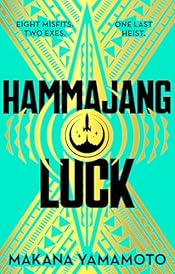 Once again my post contained books from ParSec magazine.
Once again my post contained books from ParSec magazine.

 Two books arrived last week for me. I was away over the weekend and so didn’t get round to noting them here until now.
Two books arrived last week for me. I was away over the weekend and so didn’t get round to noting them here until now.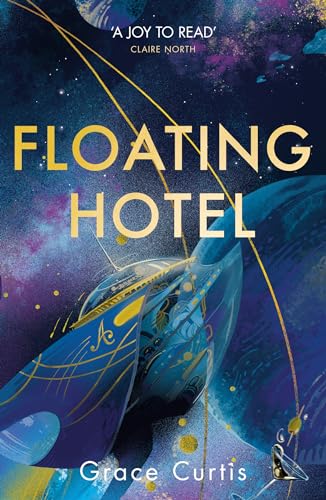 Welcome to the Grand Abeona Hotel, a once (and still) luxury spacefaring hotel, now a little down on its luck but still presenting a sumptuous face to the universe. Curtis tells us it has ‘class.’ Well, maybe, but as described it has – for 2774 – a decidedly (but deliberate) retro aesthetic, a restrained colour palette, an analogue appearance. Internal communication is by printed paper slips sent in sealed tubes through hydraulic glass pipes. It even has an old-style cinema (which hosts The Shit Movie Club.)
Welcome to the Grand Abeona Hotel, a once (and still) luxury spacefaring hotel, now a little down on its luck but still presenting a sumptuous face to the universe. Curtis tells us it has ‘class.’ Well, maybe, but as described it has – for 2774 – a decidedly (but deliberate) retro aesthetic, a restrained colour palette, an analogue appearance. Internal communication is by printed paper slips sent in sealed tubes through hydraulic glass pipes. It even has an old-style cinema (which hosts The Shit Movie Club.)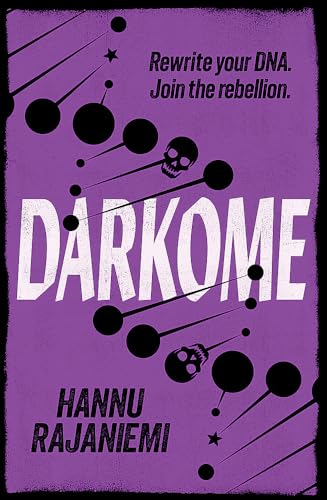
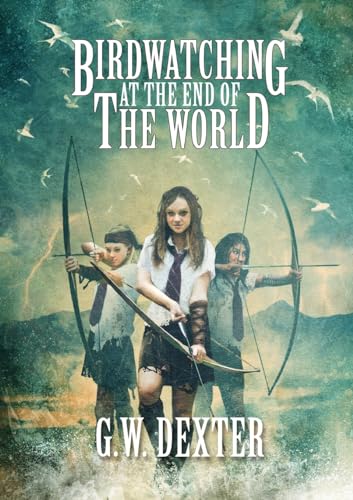 Hot off the presses and to be read for
Hot off the presses and to be read for 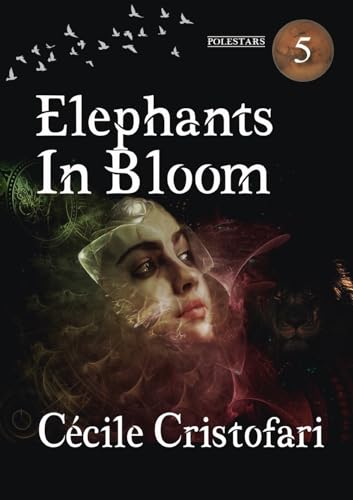 This is the author’s first collection of short stories. Ten of them appeared in a variety of publications over the past five years, eight are original to this book. Each is provided with an authorial afterword. Some of these mention Cristofari’s French background and the latitude she gains as a writer from having two languages to draw on. She casts her net wide, with settings ranging from prehistory through to the present day and beyond. A common thread running through them is ecological collapse and possible recovery from it, in perhaps a sign of recent events some feature characters living in the aftermath of a pandemic.
This is the author’s first collection of short stories. Ten of them appeared in a variety of publications over the past five years, eight are original to this book. Each is provided with an authorial afterword. Some of these mention Cristofari’s French background and the latitude she gains as a writer from having two languages to draw on. She casts her net wide, with settings ranging from prehistory through to the present day and beyond. A common thread running through them is ecological collapse and possible recovery from it, in perhaps a sign of recent events some feature characters living in the aftermath of a pandemic. Yesterday, Lake of Darkness, the latest novel from Adam Roberts, was handed over by our postman.
Yesterday, Lake of Darkness, the latest novel from Adam Roberts, was handed over by our postman.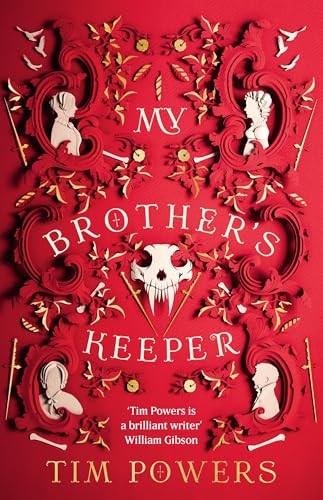 The Yorkshire Moors make an ideal setting for tales of the uncanny. A thin place. Remote, wild, desolate, atmospheric, and above all, wuthering. A world beyond the world. It is easy to imagine strange goings on, mysterious creatures, ghosts, hidden menace, inhabiting the landscape. But we don’t have to. The Brontë sisters (well, Emily) already did. And now, so too has Tim Powers in a story whose central focus is on the Brontë family and Emily’s dog, Keeper, but also incorporates the author’s usual injections of weird. In particular here we have boggarts, gytrashes, barguests, (the latter two being essentially the same thing,) werewolves, a temple on the moors to the Roman goddess Minerva, double-bladed knives called dioscuri, an ancient creature with latent potency buried inside Haworth Church under a slab with an Ogham inscription. Not to mention clandestine human organisations known as the Oblique and the Huberti.
The Yorkshire Moors make an ideal setting for tales of the uncanny. A thin place. Remote, wild, desolate, atmospheric, and above all, wuthering. A world beyond the world. It is easy to imagine strange goings on, mysterious creatures, ghosts, hidden menace, inhabiting the landscape. But we don’t have to. The Brontë sisters (well, Emily) already did. And now, so too has Tim Powers in a story whose central focus is on the Brontë family and Emily’s dog, Keeper, but also incorporates the author’s usual injections of weird. In particular here we have boggarts, gytrashes, barguests, (the latter two being essentially the same thing,) werewolves, a temple on the moors to the Roman goddess Minerva, double-bladed knives called dioscuri, an ancient creature with latent potency buried inside Haworth Church under a slab with an Ogham inscription. Not to mention clandestine human organisations known as the Oblique and the Huberti.